Inside the Booker Prize: arguments, agonies and carefully encouraged scandals
Its knack for creating tension and controversy has helped it remain an energising force in publishing for more than 50 years – but how do writers, publishers and judges cope with the annual agony of the Booker?
Charlotte Higgins
Tuesday 5 October 2021
Just after 7.20pm on 20 October 1981, the 100 or so guests for the Booker prize ceremony sat down under the oak panelling of the Stationers’ Hall in the City of London. Dinner was mousse of avocado and spiced mushrooms, goujons of sole, breast of pheasant Souvaroff, black cherry pancake and hazelnut bombe. The menu’s vaguely fashionable ingredients (avocado!) announced the year’s prize as at least tentatively modern. (Back in 1975, there had been la tortue verte en tasse (green turtle soup), a dish from another age altogether.) Among the guests were prominent figures, then and now, of London’s cultural scene: Joan Bakewell, Alan Yentob, Claire Tomalin. The seating plan had been kept flexible in case Italo Calvino declared himself available at the last moment.
It was the year BBC began regular live TV coverage of the Booker prize, which was as fundamental to its fame, through the great era of terrestrial television, as the carefully encouraged scandals that regularly detonated around it. The year before, Anthony Burgess had demanded to know the result in advance, saying he would refuse to attend if William Golding had won – which he had. The prize’s administrator, Martyn Goff, leaked the story, and Burgess’s literary flounce made for gleeful headlines. Over Goff’s 34 years in charge, many more semi-accurate snippets from the judging room were let slip. “I was somewhat dismayed to find that purposive, often very misleading, leaking was going on,” Hilary Mantel, a judge in 1990, told me. It was by such steps that the Booker became not just a book prize, but a heady tangle of arguments, controversy and speculation: a cultural institution.
The 1981 TV broadcast included an interview with a bookie from Ladbrokes. Muriel Spark’s novel Loitering With Intent was the favourite, at 7-4. DM Thomas’s The White Hotel was, at 3-1, expected by many to come through. Also in the running were Molly Keane, Ian McEwan, Ann Schlee, Doris Lessing and Salman Rushdie. Bookies’ odds, a regular feature of the prize, strike some as undignified when transported from the racecourse to the field of serious literature. But the Booker was always intended, according to an early memo, to provoke “tension and anticipation”, and enough of it, it was hoped, “to cause people to wait outside the building where the final session is in progress, because they can’t bear to wait a minute longer than necessary to get the news”.
At 7.37pm, the winner’s name was announced. The cameras swivelled towards the 34-year-old Salman Rushdie (8-1), until recently an ad man at Ogilvy and Mather, who picked up a cheque for £10,000 and instant fame.
The prize was becoming part of a bolder, bigger and more competitive spirit in publishing, and British culture more generally. Penguin’s canny new boss, Peter Mayer, had snapped up the paperback rights to most of the 1980 shortlist, and rushed them out with a Booker slash on the cover – making buying, reading and having an opinion about “Booker books” affordable and attractive. In 1982, an enterprising new bookshop chain called Waterstones was founded, and two years later, the Turner prize was established as the Booker for art. In the thrusting Thatcher years, competitions – as well as competition – were all the rage.
From Rushdie’s victory onwards, life has changed dramatically for most of the authors who have won the prize. (In the early days this was “an Oscar-type thing”, as an internal memo referred to it: a vaguely art-deco, female figure holding aloft a shallow dish, more than half a metre tall.) “It made it possible for me to live by my work, which I have done ever since,” Rushdie told me. When Ben Okri heard his name announced a decade later, at a banquet at Guildhall in London, “I got up, walked slowly, in a dreamlike way, past all these tables and made my way across,” he told me. “You could divide my literary life in that walk.”
The prize today is worth £50,000 and a guaranteed surge in sales. It remains transformative for its winner. Hilary Mantel’s Wolf Hall was already a bestseller when it won in 2009; even so, she told me, “You feel your status change overnight”. Bernardine Evaristo, who won jointly with Margaret Atwood in 2019, is, two years on, still busy with press interviews. When we spoke in the summer, it was, possibly, Portuguese publication day, though she’d lost track. Before the Booker she had never been able to make a living purely from her fiction. Then came the prize, and, at 60, with her eighth novel, “everything that I could have wished for my career happened to me overnight”: stage rights and film rights sold; 50 translations on the way; a BBC Imagine documentary. The first Black woman to win, she found herself in demand to speak out politically. “Suddenly I was given a certain kind of gravitas, and respect and authority,” she said. Evaristo has become, one publisher told me, “the interviewee, the interviewer, the chair of this, the face of that”.
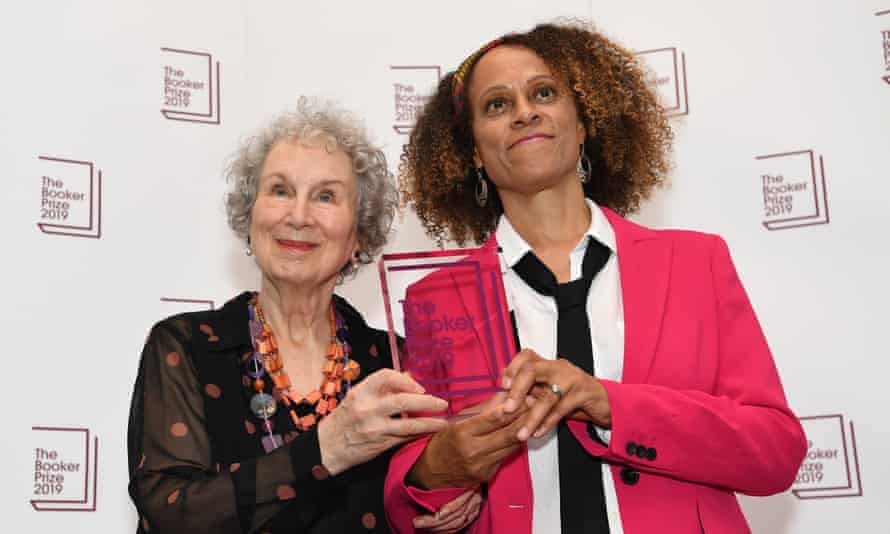
There was no banquet for Douglas Stuart, who won last November’s prize for his debut, Shuggie Bain. Instead, he and his partner, on Zoom at home in pandemic-hit New York, ordered pizza and unearthed an “ancient” bottle of champagne. He spent much of the next two months on the same grey sofa at home, giving Zoom interview after Zoom interview. His editor in London, Ravi Mirchandani, told me that when Picador acquired the book they would have been pleased if it had sold 25,000 copies; now it has sold 800,000 in the UK alone, never mind US sales and its endless foreign editions. “Marathi, Georgian and Mongolian translations,” said Mirchandani, “are quite something for a book about a working-class childhood in 1980s Glasgow.”
In an era in which the novel’s cultural status is wavering as other forms of entertainment loom ever larger, in which media coverage for literature is waning, in which writers’ earnings have plummeted (£10,500 a year was the median in 2018, down 42% from 2005), the Booker has grown more, rather than less, important as an energising force in the publishing industry, one that presents a mass readership with books that the market alone would rarely bring to prominence. Winning the prize, the Booker’s director Gaby Wood told me, has become a kind of “coronation”.
Aliterary prize needs judges. In ancient Athens, where the plays of Aeschylus, Sophocles and Euripides competed for an ivy wreath, citizens chosen by lot did the job. For France’s Prix Goncourt – the award that a young publisher, Tom Maschler, wanted to emulate when he dreamed up the Booker in 1968 – the 10 judges are literary grandees who, once elected, serve continuously until retirement at 80. They deliberate on the first Tuesday of each month while lunching at the Paris restaurant, Drouant, that has been their HQ since 1925. Each uses cutlery engraved with his, or more rarely her, name.
For the Booker, a fresh set of judges is chosen every year, which makes predicting the outcome reliably difficult. The person who picks them – with the approval, officially, of the prize’s trustees – is Wood, the director. A former literary editor of the Telegraph, Wood, 50, cuts a poised, intellectual figure: a contrast to Goff and her immediate predecessor Ion Trewin, both products of a more swashbuckling age of literary London. Bilingual, owing to her Mexican mother, Wood grew up in a “seminar-like atmosphere”, she told me – her father, Michael Wood, is a Princeton English professor who was, coincidentally, chair of the Booker jury in 2015, the year she was appointed.
Wood’s position makes her one of the most quietly powerful people in the global publishing industry, a power discreetly exerted from her flat in Archway in north London, since, for now, the prize lacks an office. (Until earlier this year, when Wood’s freelance role was made into a full-time job, it also lacked any employees, though an external PR consultant, éminence grise Dotti Irving, has worked continuously with the prize since 1993.)
The prize’s founders identified the appropriate mix of judges as a “chair”, a “reviewer”, a “publisher”, a “novelist” and an “outsider”. (The last might mean, a memo from 1970 outlined, an “intelligent actress … like Sheila Hancock or Fenella Fielding”.) In the years since then, publishers, except retired ones, have been banished, and ideas about diversity have radically transformed. The prize waited nearly 20 years for its first Black or Asian judge (newsreader Trevor McDonald, in 1987); since 2015, about a third of judges have been people of colour. Until Wood put a stop to it, the advisory committee lunched in the ultra-traditional, male-only members club the Garrick. “When I got the job,” she told me, “a couple of them said: ‘Oh, don’t worry, Gaby, we can book the table for you.’ And I said: ‘That’s not the point.’”
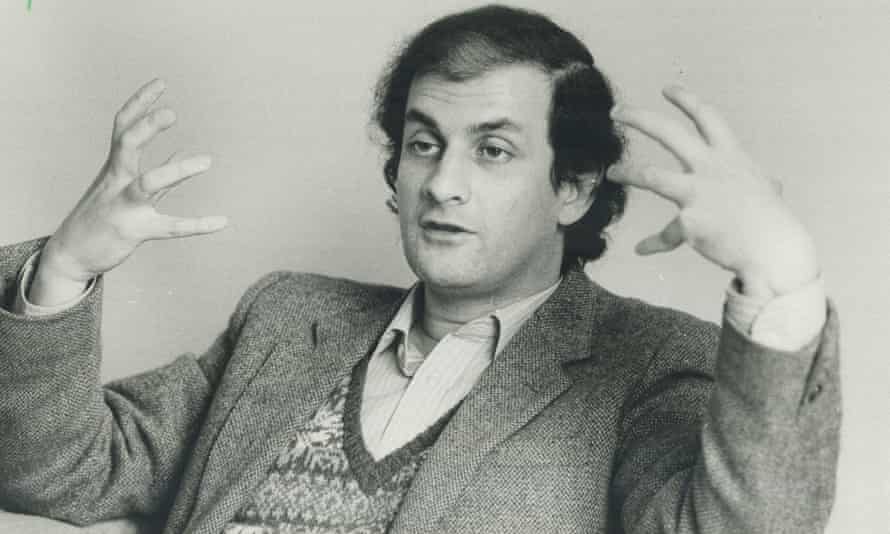
Wood likes to think of the judging panel, she said, as a jury of “creative peers”. The judges for 2021, chaired by the Harvard historian Maya Jasanoff, fall into the categories of “a novelist, a highly literate actress, an academic, a journalist and a retired parson”, in the words of said parson, the former archbishop of Canterbury and poet, Rowan Williams. One fixed point among the judges is a critic, often someone Wood has worked with in her former life as a literary journalist. This year, that’s Horatia Harrod, an editor at the Financial Times; in 2016, it was the writer and academic Jon Day, whose invitation, he said, was vague and slightly mysterious, “a bit like being approached in an Oxford pub for MI5”. Wood told me she picked Day “because he can explain Will Self to Telegraph readers” – a way of saying she wanted someone who knew about modernism but wasn’t absolutely abstruse in their leanings.
The Booker treads a narrow line between literary credibility and popular appeal. If winners are seen as too obscure, there is a risk the public blows cool and the book-trade becomes testy. (James Kelman’s 1994 winner, How Late It Was, How Late, was the subject of a sarcastic letter to the prize from the head of books at WH Smith, who noted it had, after its win, quadrupled its sales – from eight to 30 copies a week.) If the prize veers too mainstream, though, that is also a problem, since the Booker is supposed to be decided on loftier criteria than mere commercial appeal. In 2011, when Wood herself was a judge, there was a row when one of her colleagues declared he favoured books that “zip along”. The ensuing kerfuffle contributed to the foundation of not one but two competitor prizes seeking to claw back a literary purity seen to be crumbling away from the Booker. Prizes breed prizes, as the literary scholar James English has noted: either to emulate a successful model (the Goncourt was set up in the wake of the Nobel, the Booker to rival the Goncourt, the Turner to imitate the Booker), or to establish a salon des refusés. The Women’s prize was set up in response to an all-male Booker shortlist in 1991, just as France’s Prix Femina was set up in 1904 to counter the misogyny of the Goncourt.
Wood likes “to mix and match judges, and treats it like a weird fivesome dating thing”, said the novelist and books editor of Prospect magazine Sameer Rahim, a judge in 2020. Often, Wood thinks in intriguing or unlikely pairs of judges – critical theorist Jacqueline Rose alongside crime novelist Val McDermid (2018); or classics professor Emily Wilson with thriller writer Lee Child (2020). “For me there’s something about the first woman to have published an English translation of the Odyssey and the author of Jack Reacher in conversation about contemporary English fiction,” Wood said. “Can you be both extremely exacting and extremely democratic? Might those two people embody that idea?”
Playing with potential judge combinations is a year-round game. “Just this morning,” Wood told me this spring, as she was working on a possible lineup for the 2022 prize, “I was doing my fantasy football team, moving names around in Notes on my phone. I do that every other day. These people go on to the team and these go on to the subs’ bench.”
Submitting books for the prize is an annual agony for publishers. At first glance, the rules seem simple enough. Each imprint (which might be an independent publisher, or a sub-brand of a conglomerate), gets to submit one book: a work of “long-form fiction”, originally written in English. Self-published works are not eligible, nor are short-story collections. The word “novel” was removed from the rules in 2019, having proved contentious as long ago as 1971, when judges Saul Bellow and John Fowles disagreed with their colleagues that the winner, VS Naipaul’s In a Free State, could properly be so described.
But there are mind-bending complications. On top of that one book – which might represent 100% of an imprint’s annual fiction list if it’s a small indie like Galley Beggar Press, or as little as 10% for a big publisher, like Jonathan Cape – any novel by a previously shortlisted author may be submitted. In addition, imprints that have had books longlisted in the past five years can submit additional titles, on a sliding scale of up to four extra. On top of that, each imprint can nominate another five works to be “called in”, if desired, by the judges. Finally, judges are also entitled to “call in” any other eligible book they please. No one I spoke to, except the Booker prize’s freelance company secretary Eve Smith, could remember all of these rules offhand.
No change to the criteria has been more controversial than the decision, in 2014, to expand eligibility to include all authors writing in English, rather than, as previously, only those from the UK, Ireland, the Commonwealth and Zimbabwe. The change meant, crucially, that Americans could now be entered, and would, many feared, come to dominate the prize. (This year, there is only one UK author on the shortlist, the British-Somali writer Nadifa Mohamed, and half are American.) The change was furiously opposed by many in the British publishing industry – not least since the big US prizes, such as the Pulitzer and National Book Award, are reserved for American writers. Even US critics complained, saying that the new rules robbed them of a chance to discover books from beyond their borders. As recently as three years ago, 30 publishers signed a joint letter demanding a reversal. Prior to 2014, the Booker had flirted with running its own US prize, cashing in on its significant name recognition among transatlantic readers; a viability report from the management consultancy firm McKinsey was even commissioned. The idea was eventually ruled out owing to cost, complexity and faint intimations of hubris. It was Ed Victor, the late literary agent, who suggested that the prize could simply expand the criteria of the original prize.
From the perspective of the prize’s organisers, the old Commonwealth criteria had come to seem arbitrary, a hangover from the early years, when, from 1969 to 2002, it was bankrolled and partly run by the Booker company, a business with roots firmly in the British empire. It is now a UK-based food wholesaler, but until the country’s independence, it was based in Guyana, largely producing rum. After Booker plc, by then under new ownership, dropped its sponsorship, the prize was set up as a charitable foundation promoting literature and reading, and the Man Group, a hedge fund, supported the prize for 17 years. Since 2019 it has been funded by a very modern kind of philanthropist: Michael Moritz, a wiry, well-read, publicity-shy, cycling-mad, Cardiff-born former journalist who wrote the first biography of Steve Jobs, made billions as a Silicon Valley investor, and is keen to see the Booker prize become more digitally active.
“The old rules were imperialist rules,” said Nick Barley, director of the Edinburgh international book festival and a Booker prize foundation trustee. “The idea was that we would celebrate things published in the former empire. In the long term, changing the rules was inevitable.” Barley was also the chair of the Booker international prize judges in 2017, which rewards fiction in translation: the two awards now interlock, covering all English and foreign-language novels published in the UK.
Amid the forest of rules, there are various possible tactics available for editors hoping to increase their chances of a win. One is to formally submit a debut or work by a less famous writer, thus ensuring that it gets read, while keeping back a bigger name for the call-in list, betting that the judges will feel obliged to consider it. “It’s unbelievably high-risk, because, perversely, they very often don’t call in the famous name,” said Dan Franklin, who retired as head of Jonathan Cape in 2019. On Hilary Mantel’s shelves, only three or four books remain from her judging year of 1990. Among them is David Malouf’s The Great World, which she called in. It did not make the shortlist: “It was so late and we were so weary,” she told me. Even now, “Every time I look at it, I think: ‘Could I have fought harder?’” She wishes Chatto & Windus had submitted it; it would have had a better chance.
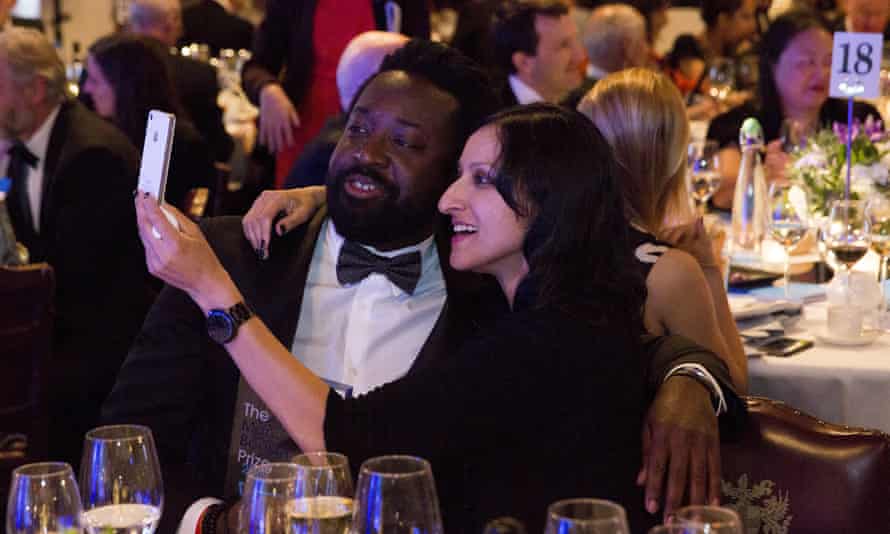
Another tactic is to increase the number of books one can submit – by founding a new imprint of your publishing house. “One might ask why, for instance, Bloomsbury started its imprint Bloomsbury Circus,” speculated critic and writer Stuart Kelly, a 2013 judge. “It wasn’t as if there was apparently a very different aesthetic between the two publishers, but they just doubled the number of possibilities.” Some publishers scrutinise the CVs of the judges and submit according to their supposed tastes. “You are trying to think: ‘Is Kingsley Amis going, as it were, to vote for Trainspotting?’ Probably not,” said Franklin. This approach can misfire: there was an upsurge of thrillers submitted when Lee Child was a judge; none were longlisted.
The crucial thing, Franklin said, was for editors to make it a rule to never, ever tell authors whether or not they had been submitted – not if you wanted to avoid terrible rows with agents, or furious, depressed authors. Various editors told me of agents attempting to stipulate in contracts that an author’s book must be submitted, though none would admit to this ever having happened to them personally. Franklin, when faced with a deadlock on what to submit, told me that in the end “we sometimes used to toss a coin”.
Juliet Mabey, of independent publisher Oneworld, had two winners in consecutive years, Marlon James in 2015 and Paul Beatty in 2016, both of which she’d picked up for tiny, five-figure advances. She might, then, be considered something of an expert on the art of submission. (She told me she knew Shuggie Bain would win last year’s prize as soon as she saw the longlist.) But in the end, she said, there was no science to it. “You just pick up the donkey’s tail – and pin it.”
No one, at any point in their life, will read novels as intensely as a Booker judge. After sets of books arrive from publishers at the offices of Dotti Irving’s PR firm, they are numbered and sent off to the judges in the order they arrived, ready to be discussed, 20 or 30 at a time, at sessions that run every month from January until the longlist meeting in July.
This year, the judges read 158 books – close to one a day after the post-Christmas trickle became a steady stream. The number has escalated over the years: in 1969, the judges considered about 60 novels, in 1981, Rushdie’s winning year, 70-odd; in 1994, it was 130. For other prizes, including the Baillie Gifford prize for nonfiction and the National Book Award in the US (which can attract as many as 400 submissions), there is an initial triage system, through which judges will share out early-stage reading between them. This is not the case for the Booker. The deal is that every judge reads every book, and the pay is, accordingly, high by the standards of British book prizes.
“I have had days when I have read two novels cover to cover and started a third,” this year’s chair, Maya Jasanoff, told me. Film critic and novelist Anthony Quinn, a judge in 2006, picked up an endurance tip from novelist Sebastian Faulks – you read leaning on the kitchen counter, on which you have placed a knife pointing bumwards. If you drop off, the knife will stab you awake and you continue reading. One of his fellow judges that year, novelist Candia McWilliam, recounted in her memoir that she went blind with blepharospasm, a condition in which the sufferer cannot open their eyes, immediately after finishing the Booker reading. Correlation, of course, is not the same as causation; either way, her condition had to be carefully covered up at the prize dinner. “The hilariousness of a blind judge for a literary prize already buffeted by vulgar attention might have done an indignity to the prize or its sponsors,” she wrote.
Booker judges are apt to develop intense relationships with each other, on a scale from adoration to deep mutual loathing. Jasanoff told me this summer that whenever she saw her colleagues’ faces popping up in the Zoom room, she would think to herself: “Here are these other people who have this very strange life – I’m among my people.” On the other hand, the biographer Victoria Glendinning, chair of a deadlocked jury in 1992, once found herself telling a fellow judge he was “a condescending bastard”. In her prize-night speech, she described the judges’ relationship as close “in the circumstantial way” of people “thrown together by a railway accident”. For Philip Larkin, chair in 1977, the analogy was also one of some freak disaster. “It was remote yet intense, like people sharing a raft after a shipwreck”.
Wood sits in on every meeting (just as its director, Fiammetta Rocco, will do for the international prize), taking notes and only occasionally speaking. This year, for example, she has told the judges that they needn’t be quite so polite to each other – their almost extreme good behaviour due, she suspects, to Rowan Williams’s archiepiscopal presence. One former judge recalled a colleague dismissing an Ian Rankin detective novel, saying it wasn’t the kind of book that could win the Booker. Wood intervened. “At those moments I say: ‘No. You have to say why,’” Wood told me. “‘You have to judge it on the level of the sentence, on the level of characterisation, the same as everything else. Not on what ‘kind of book’ it is.’”
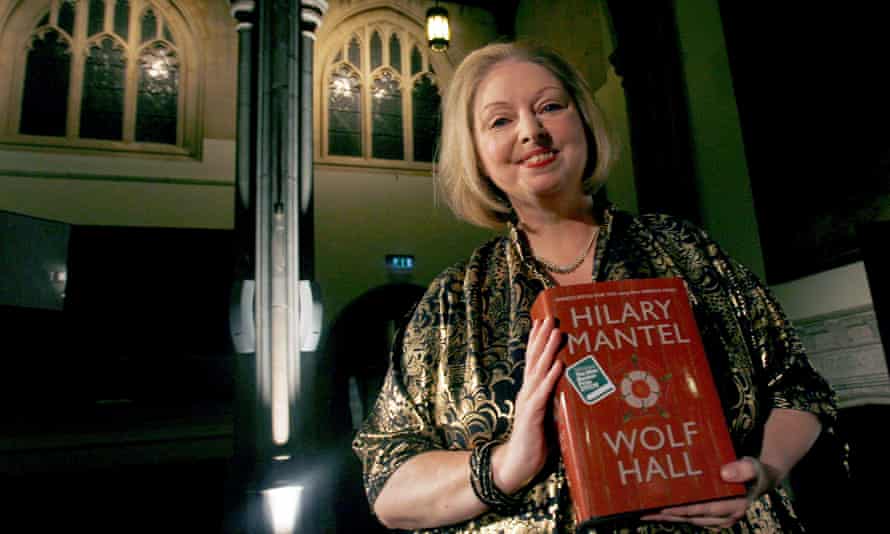
Some past judges quietly confessed that they had adopted a system of “reading into” books, abandoning them after 50 pages if they were not showing promise. For many, though, it is a matter of pride to complete the task fully: “You have to do it,” said critic Stuart Kelly, “with both duty and courtesy.” Day wrote mini-reviews for every book submitted, on a computer file that grew to tens of thousands of words long. Rebecca West, a judge in 1969 and 1970, was more succinct – and brutal. Her notes record she thought that Michael Frayn was “curiously dull”, Melvyn Bragg “grossly overwritten” and that Mordecai Richler’s “genito-urinary systems [kept] on coming between the reader and the page”. Even a book she liked, Anthony Powell’s The Military Philosophers, was “not earth-shaking”, as there was “such a high percentage of twaddling on”. In 1971, Malcolm Muggeridge resigned from the panel, finding “most of the entries mere pornography in the worst sense of the word”. Rowan Williams has not had objections of this kind. Still, “There are moments,” he told me, “when you never want to read anything but PG Wodehouse again”.
Jasanoff’s system for whittling down 158 books into a longlist of 13 – and every panel will devise its own – was that judges were to arrive at meetings armed with three favourites and two other “maybes” from the month’s haul. After a bout of what Wood calls “literary group therapy”, they placed the books in green, amber or red categories. Greens went through to the longlist meeting, ambers were to be returned to, reds were out. By July’s longlist meeting there were about 30 books, which were then whittled down to 13. The result was an eclectic selection that ranged from Nobel laureate Kazuo Ishiguro’s Klara and the Sun to Karen Jennings’ An Island, which was printed with an initial run of just 500 books. “We definitely don’t agree on everything,” Jasanoff told me just after the meeting. “Each of us has at least one book that we would not have seen on the longlist … We felt that there was real value in including books that had strong advocates and strong detractors: they made us have serious discussions about what we thought it was that fiction was trying to do.”
To arrive at the shortlist, at the key meeting in September, Jasanoff asked each judge to separate the longlist into books they passionately wanted to see shortlisted, and those they did not want to see shortlisted, with each leaving some books floating in the middle. Each judge’s preferences were submitted privately to Wood in advance. (None knew the others’ choices, so there were no advance backroom deals or horse-trading.) Out of that process, three titles floated to the top, and two were fairly easy to rule out. The other three slots were debated.
In the end, after a three-hour meeting, each judge found that the shortlist they’d drawn up contained three books they’d argued for. Ishiguro, and another big British name, Rachel Cusk, were out. One judge saw a book they’d assumed would go through, one that had been well supported at longlist level, fall away; they hadn’t quite had their rhetoric marshalled to save it on the day. “It was pretty harrowing,” Wood told me. “There will always be one judge that feels like an outlier in these meetings. One of them was still mourning a book not longlisted.”
Deciding the winner is, more often than not, painful. No detailed guidance is laid out in the Booker’s rules. Sameer Rahim, when judging in 2020, believed strongly in applying “some kind of objective criteria”, otherwise it’s “just an elevated book club”. Others trust their instincts. “What you really want to capture is this feeling of ‘I must push this book on to my friends’,” said Jon Day. It can be a slightly melancholic process, all the same. “You realise how many perfectly fine novels are published,” he said. “Totally fine, creditable novels. At times I just got a bit depressed by the relentless OK-ness of much contemporary fiction.”
Given that there are multiple possible interpretations of what is “good” or “best” in literature, considerations that are not strictly aesthetic might come into play, at least for some judges. “I personally thought that it’s actually OK, if multiple books are good, to think we might want to longlist more by young people and more by people of colour,” said classics professor Emily Wilson. The prize is not immune from politics in other ways, either. While Wilson and her colleagues were in the process of reading in 2020, the Booker foundation found itself in a perilous position after Emma Nicholson, an honorary vice-president of the prize, was challenged for what one writer described as “very public and very powerful homophobia”, and for “attacking members of the trans community” (accusations she strongly rejected). At the time, “It made me think we really need to come up with a shortlist of all trans and non-binary authors”, Wilson told me. Mostly kidding, she nevertheless mooted the notion with fellow judges. (In the end, the position of honorary vice-president itself was quietly removed by the Booker trustees.)
The Booker has an uneven number of judges: it is designed to produce a single winner. That’s not what happened in 2019, when it was split between Bernardine Evaristo and Margaret Atwood. Evaristo was initially ahead by three votes to two – often there is a three-to-two split in the last meeting, Wood told me – but the judges were encouraged by their chair, the former Hay festival director Peter Florence, to rebel against the regulations – “a very solipsistic thing to do,” said the novelist Sarah Hall, who has been both shortlisted and longlisted for the prize, and judged it in 2017, the year George Saunders won. Judging the Booker is by definition “heartbreaking”, Hall told me. Your favourite may not win; you will lose beloved novels along the way. “I love Lincoln in the Bardo and think it’s a brilliant winner. That’s not to say I wasn’t heartbroken by the last remaining book it was pitted against. Which is also a brilliant book. You have to think: ‘I will be disappointed.’ Disappointed at longlist level, disappointed at shortlist level. And also proud, hopefully. There is a cognitive dissonance to the whole process.”
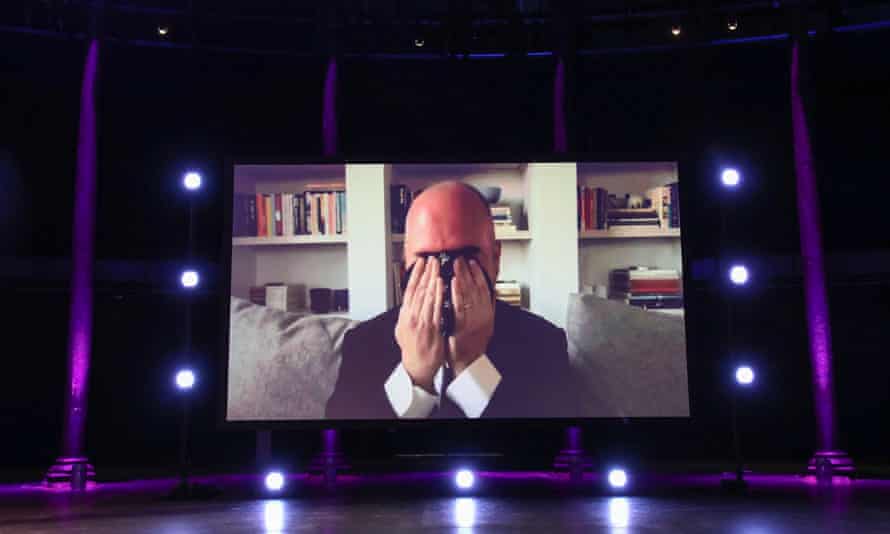
Especially divisive books – perhaps because they are formally experimental, perhaps because they contain material that some judges find difficult – are unlikely to progress to the end, particularly if that year’s panel is inclined to take one or two judges’ extreme disfavour as a dealbreaker. Adam Mars-Jones’s Box Hill, for example, about a submissive, possibly abusive, gay relationship, which opens with a leisurely description of an alfresco blowjob, was considered by one or two of the 2020 judges unsuitable for recommending to friends and family. (One judge wryly described their eventual winner, Shuggie Bain, as, by contrast, “gay, but not too gay”.) Particular authors have repeatedly fallen aside at the last moment: Beryl Bainbridge became the eternal “Booker bridesmaid”, as the sexist label had it, being shortlisted five times, and winning only a one-off posthumous award invented for her benefit in 2011. Muriel Spark was shortlisted twice. Ali Smith has been shortlisted four times. All are authors of deceptively modest books that do not insist upon their own greatness.
Before the shortlisting and the final meeting, the judges read the remaining books again. Wood calls it “a stress test”. “It’s a crazy process, but it’s also one way of telling what’s going to last. They are looking for a book that basically rewards rereading. By the winner meeting, they’ve read them at least three times.” This repetition is why “comedy and crime never win”, said 2013 judge Stuart Kelly. “Tell me any joke that’s funny on the third reading. With crime, on the second reading you might be drawn into, say, the social background of the book. But on the third?” There are books, Day told me, “that can collapse on the second reading”. On the third, said Nick Barley, they might “curdle”.
The winning book is often a work that can be appreciated from different viewpoints by different judges. The 2018 winner, for example, Anna Burns’s Milkman, could be approached as a historical novel about the Troubles; a political novel; a feminist novel; one that pushed at the edges of the novel’s form. “All six books were present in the room, like companions,” said Wood of the final meeting that year. “They were honoured by intense redescription, as if none of the judges could bear to leave them behind. And then the discussion became richer over one in particular, and went on and on until it became obvious that that was the book that would have to win. It wasn’t really like judging at all – it was more like Milkman levitated, because of what those five people saw in it.”
Out in the world beyond the judging room, six publishers had put in provisional print orders, each book’s cover rebranded with a “winner of the Booker prize” logo, and any details, such as flaps on a paperback, that might slow down a rush printing, designed out. On that evening, 16 October 2018, five of the six orders were never confirmed; and for five authors the work began of recovering from the disappointment and getting back to work. Sarah Hall – who turned 30 the year she was shortlisted, in 2004 – remembers that for her, the only woman on the list, the whole experience had “felt unknown and pretty overwhelming”. It took her longer to complete her next novel than she’d anticipated. There were now expectations of her work, in a way there hadn’t been before. “I steered away into sci-fi, stepping around the question of ‘What is she going to do next?’” she told me.
Winning “makes a lot of people more anxious writers”, said Mantel. “For me it’s been nothing but positive, but I think that was because I’d been around a long time, and nothing much was going to knock me off course. I didn’t have to come up with some super-miraculous idea and sort of beat myself.” Victory is also incredibly time-consuming and distracting. Douglas Stuart told me of his relief at having his second novel already finished by the time of his Booker nomination. Evaristo laughed when I asked her if she’d written any fiction in the past two years. (She is, however, publishing Manifesto, a work of nonfiction, this autumn.)
This year’s winner will be announced on 3 November, after the 2021 judges’ first in-person meeting. “This will sound ridiculous, but I’m often very moved by the final stages of judging, said Wood. “All these incredible readers are sitting together, along with the fictional worlds they’ve inhabited, and as an observer I feel the room is almost thick with the breath of the books.”
One of those judges, Chigozie Obioma, who has the unusual qualification of having been Booker shortlisted for his first and second novels, confessed himself “a little bit demoralised” when we spoke this summer. “The experience makes me think ‘Never, ever, in your wildest imagination, even imagine that your book will be in the running for any prize,’” said Obioma. “Don’t do that to yourself. You can never grasp the sheer scale of what is being produced. Right now I have three or four winners, in my mind. It’s luck,” he said. “It’s just luck.”
THE LONG READ





No comments:
Post a Comment